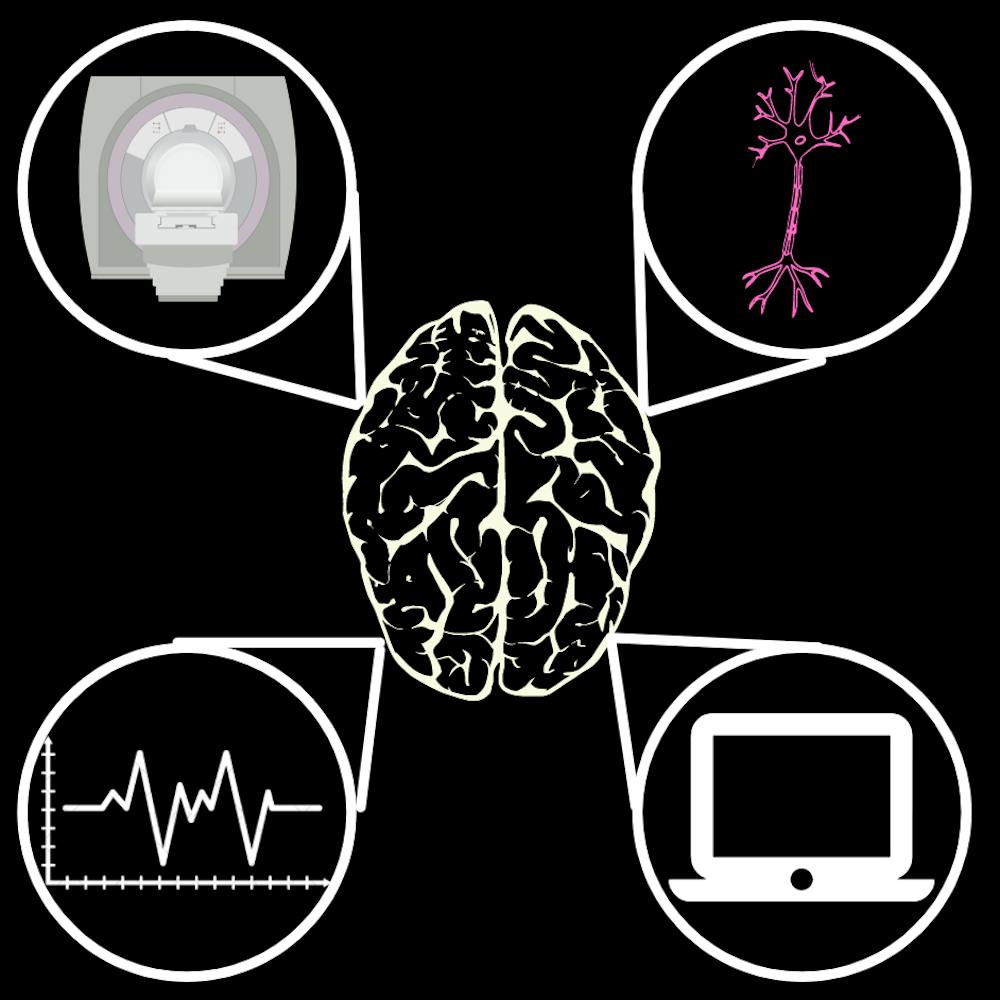
“How can science address questions about life?”
This is the principal question that lies at the foundation of the study of neuroscience, as the Director of Undergraduate Studies for Neuroscience Jason Trageser emphasized in an interview with The News-Letter.
“Most of the students who come to the major are passionate about understanding the brain and its relationship to us as humans,” he said.
This major is one of the more popular ones on campus. It is led by a collaboration between several undergraduate departments — Psychological and Brain Sciences, Cognitive Science and Behavioral Biology. Trageser explained that faculty from all these departments contribute to the program by teaching various courses and electives, allowing for interdisciplinary teaching and research.
While all students majoring in Neuroscience study the nervous system and its core organ (the brain), over their four years they also begin to specialize in one aspect of the field. Focus areas within the major range from Cellular and Molecular Neuroscience to the newer Computational Neuroscience track. These focus areas provide students with the opportunity to take a wide variety of classes and pursue personal interests within the growing neuroscience field.
The program also works closely with the campus chapter of Nu Rho Psi, the National Neuroscience Honors Society, to plan various social events throughout the semester and provide engaging opportunities for students to meet each other and share research work. For Leah McDonough, a current sophomore studying Neuroscience, one of her favorite parts about the major is how many people she gets to meet.
“The best aspect of the major is the community. Between my peers and the faculty, I feel like I’ve met some really amazing and interesting people who are passionate about the subject,” she said.
Trageser also emphasized independent research as a central part of the program. To complete the major, students must fulfill a research requirement. Faculty at the Homewood Campus and the med campus are open to undergraduate contributions.
McDonough enjoys how there is still much to be elucidated about the brain and finds it fulfilling to participate in research that constantly evolves our understanding of the brain’s functions.
“The research opportunities are great. I know lots of people doing cool work, from Alzheimer’s research to how we feel sensations like pain,” she said.
Trageser explained that computational methodologies are increasingly being utilized as an additional tool in neuroscience research and in research in the natural sciences as a whole.
“Translating computer science sorts of problems into fields like neuroscience will allow computational thinking to keep being more entrenched as another tool to deal with large sets of data and further understand the brain,” he said.
Research in areas such as neuroeconomics, connectomics and artificial intelligence, Trageser noted, represent the frontiers of the next era in neuroscience and its applications to our lived experience as humans. Faculty and students are contributing to our understanding of memory, perception and linguistic capabilities.
Almost all these applications have implications for medicine, such as developing treatments for neurodegenerative diseases or improving medical devices and decision-making. Perhaps not surprisingly, a large number of undergraduates in the major are on the pre-med track and hope to utilize their coursework and research experiences in medical careers.
These medical applications are one approach to using neuroscience to answer life’s big questions. Trageser noted that the field of neuroscience offers a variety of pathways for approaching such questions. He was drawn to the field when he was studying Philosophy as an undergraduate and was interested in such questions as “What is free will?” Similarly, students majoring in Neuroscience have the opportunity to delve deep into the machinery of the human mind.





